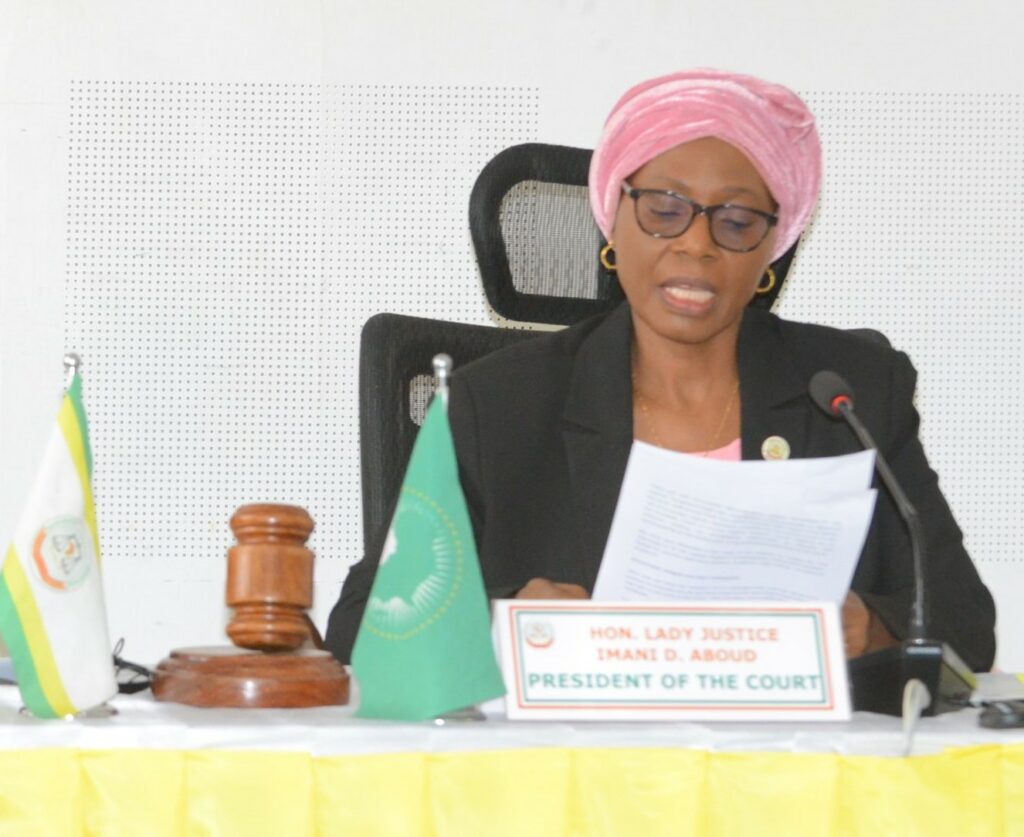Invoke applicable legal standards to deal with migration – African Court

Lady Justice Imani Daud Aboud, President of the African Court on Human and Peoples’ Rights, says countries on the continent must invoke the applicable legal standards to deal with problems encountered by refugees, asylum seekers, internally displaced persons and migrants.
“Africa has to speak and take the lead in adopting norms for dealing with refugees, asylum seekers, and even internally displaced persons,” Lady Justice Aboud stated at the International Association of Refugee and Migration Judges (IARMJ): African Chapter Regional Conference in Arusha, Tanzania.
The conference focused on access to asylum, territory, and justice – context and challenges in Africa is being attended by legal luminaries who will also reflect on refugees, asylum seekers and migrants in Africa.
Lady Justice Aboud praised the then Organization of African Union (OAU), now the African Union (AU), convention governing the specific aspects of refugee problems in Africa of 1969, which includes a more comprehensive definition of a refugee than that of the United Nations.
“I believe the framers of this Convention must be applauded for taking cognisance of the peculiar African circumstances in drafting the Convention.
“I also note the AU convention for the protection and assistance of internally displaced persons in Africa which entered into force on December 6th, 2012 – this is the only continent-wide instrument so far dealing specifically with internally displaced persons,” she said.
She said the African continent has an impressive legal framework for dealing with refugees, asylum seekers and internally displaced persons.
“While these instruments are commendable, my call to all African countries is to translate their commitments to practical steps towards the full implementation of these instruments.
“Only then can the population in Africa enjoy the benefits that the adoption of these instruments is supposed to confer,” Lady Justice Aboud stated.
The African Court President explained that the movement of human beings across the globe was not new, the dynamics of this movement, however, had changed over time and also the entrenchment of the Westphalian State across the world – as a matter of fact, we must acknowledge that these dynamics will keep evolving.
“The truth is that during much of the colonial period, the movement of human beings was largely from the global north to the global south. This fact is often glossed over in many discourses on migration even though evidence in support of it abounds.
“What should be noted though is that, presently, the formalities for moving across borders abound and unfortunately it is persons who are most vulnerable who bear the greatest burden from these formalities and thus find it most difficult to cross national borders even though they have no choice,” she said.
Lady Justice Aboud said “in my view, we, presently, live in a world where there is marked resentment towards refugees, asylum seekers and migrants. It is impossible for me to comprehensively canvass the underlying causes of this resentment, hostility and social exclusion”.
She explained that global incidents of resentment towards refugees and asylum seekers, “do we see resentment that is general or only in respect of asylum seekers and refugees from certain parts of the world?
“Have we stopped and wondered why countries that were traditionally very receptive of refugees and asylum seekers have suddenly changed tack and are no longer open to taking in refugees and asylum seekers?
The African Court President admitted that while States were entitled to regulate the flow of people across their borders, “is it not important that such regulation should not hinder the movement of refugees and asylum seekers?
Dignitaries attending the conference includes Justice Isaac Lenaola, IARMJ President; Justice Dunstan Mlambo, Judge of the High Court of South Africa and Chairperson of the Africa Chapter of the International Association of Refugee and Migrant Law Judges.
Others are Justice Ben Kioko, Judge Dean of the African Court; Dr Stephanie Rothenberger, Director Rule of Law Programme, Konrad Adenauer Foundation; Ms. Vanja Karth, Director, Judicial Institute for Africa; and Mr. Ward Lutin, Head of the Asylum Knowledge Centre, European Union Asylum Agency.
The rest are Ms. Eduarda Mendonca-Gray, Deputy Development Director, British High Commission in Tanzania; and Ms. Mahoua Parums, UNHCR Representative in Tanzania.
Source: GNA
